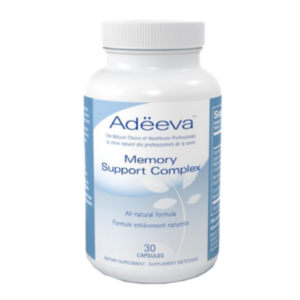
Unveiling the Power of Choline: A Key Player in Memory Health
Source: J Aging Cell (January 15, 2023)
Lifestyle Medicine Update (February 1, 2023)
Introduction:
For years, the importance of choline in maintaining cognitive health has been a focal point of discussions among students, colleagues, patients, and the public. Now, a groundbreaking research paper published in the journal Aging Cell in January 2023 adds another layer of evidence to support the claim that sufficient choline intake is integral to preventing age-related memory loss, Alzheimer’s disease, and various common health issues.
The Crucial Role of Choline
As researchers from Arizona State University highlight, choline plays a pivotal role in producing acetylcholine, the memory chemical in the brain. Alarmingly, studies indicate that more than 90% of Americans fall short of the recommended daily choline intake, set at 425 mg/d for adult women and 550 mg/d for adult men. The researchers not only emphasize the widespread deficiency but also propose that the recommended intake levels should be higher for individuals aiming to ward off Alzheimer’s disease over their lifetime.
Insights from Mouse Studies
The researchers induced choline deficiency in both normal mice and mice genetically predisposed to Alzheimer’s disease. Strikingly, choline deficiency resulted in liver damage, heart enlargement, and neurological alterations, showcasing increased development of amyloid plaque and breakdown of the tau protein—common features in human Alzheimer’s disease. Lack of choline also led to significant weight gain, blood sugar regulation issues, diabetes, and motor skill deficits in both normal and genetically predisposed mice.
The Human Connection
The researchers underscore the twofold problem faced by humans: inadequate daily choline intake and suboptimal recommended levels. They explain how choline deficiency compromises learning and memory in humans. While animal-based foods like egg yolks, beef, salmon, and poultry boast the highest choline concentrations, those opting for a more plant-based diet can find appreciable amounts in soybeans, brussels sprouts, cauliflower, peanut butter, almonds, oat bran, beans, peas, broccoli, whole wheat toast, wheat germ, and soy lecithin.
Practical Advice for Choline Intake
For those seeking a supplemental approach, taking two lecithin capsules per day (1200 mg per capsule) can provide 180 mg of choline per capsule. After the age of 55, supplementing with CDP-choline, Huperzine A, Phosphatidylserine, and Bacopa monnieri becomes prudent. Crossing the blood-brain barrier becomes more challenging with age, and these nutrients have shown promise in supporting memory function, particularly in older individuals.
Conclusion
Choline emerges as a key player in memory health, with the 2023 study providing compelling evidence of its significance. Whether through dietary adjustments or targeted supplements, ensuring adequate choline intake becomes a proactive step toward maintaining cognitive well-being.
Reference:
Nikhil Dave et al. [Dietary choline intake is necessary to prevent systems‐wide organ pathology and reduce Alzheimer’s disease hallmarks.](https://onlinelibrary.wiley.com/doi/10.1111/acel.13775) Aging Cell, 2023.
Eat Smart, Live Well, Look Great,
Dr. Meschino
Recommended Supplements

Dr. James Meschino
ABOUT THE AUTHOR
Dr. James Meschino, DC, MS, ROHP, is an educator, author, and researcher having lectured to thousands of healthcare professionals across North America. He holds a Master’s Degree in Science with specialties in human nutrition and biology and is recognized as an expert in the field of nutrition, anti-aging, fitness, and wellness as well as the author of numerous books.



